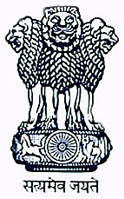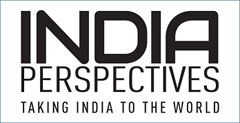India, the second largest country in the world in terms of population and the number of coronavirus cases, has begun mass vaccination of the population. Prime Minister Narendra Modi launched the largest vaccination campaign in history, during which more than 300 million people – every fifth Indian - will be vaccinated in the coming months. He urged fellow citizens to cast aside prejudices and believe in the effectiveness of the two vaccines used in the first stage - Covishield vaccine by the British-Swedish company AstraZeneca and Covaxin developed by the Indian company Bharat Biotech. India also intends to become one of the world's leading centers for the production of COVID-19 vaccines, including the Russian drug Sputnik V.
The start of mass vaccination of the population of India, which is home to 1.4 billion people, was announced by Prime Minister Narendra Modi’s in his address to the nation on Saturday. “With the help of vaccination, the country is entering a critical phase in the fight against the coronavirus pandemic,” said Mr. Modi. In his address, which was broadcast on the country's leading TV channels, he emphasized that the two drugs used at the first stage of vaccination - Covishield by the British-Swedish company AstraZeneca and Covaxin by the Indian company Bharat Biotech - were produced at the local pharmaceutical industry, having previously been thoroughly checked by the Indian medical departments.
“Stay away from rumors. Our vaccine developers have a worldwide reputation. The life-saving vaccines provided to 60% of children around the world are produced in India," said the Prime Minister, according to whom "work on other vaccines is also progressing rapidly."
We would like to remind that several other drugs are currently undergoing clinical trials at different stages in India, including the Russian Sputnik V vaccine.
The inauguration ceremony of the "big season" of vaccination on the same day took place in the hospital building of the Indian Institute of Medical Research in Delhi. The first citizens of the country to receive vaccinations were doctors from this institute. “This is a big day for mankind, not only for India, but for all countries. We have been working on it for five months and prepared vaccination sites throughout the country, even in hard-to-reach and undeveloped areas, in tribal zones,” Harsh Vardhan, Minister of Health and Family Welfare of India, who was present at the ceremony, told reporters.
Shortly before the start of the vaccination campaign, the number of coronavirus cases in India exceeded the psychological mark of 10.5 million people. And although the rate of increase in the number of cases has slightly decreased since the beginning of the year, the country still ranks second in the world in terms of COVID-19 cases after the US and third in the number of deaths (after the US and Brazil).
For the vaccination campaign the Ministry of Health and Family Welfare launched the Co-WIN (COVID Vaccine Intelligence Network) online platform, which will provide the information on the progress of vaccination, which should facilitate the work of the services involved in its implementation. Everyone who registers through the Co-WIN application will receive an SMS message indicating the date, time and place of his vaccination, which will help to avoid queues.
More than 3000 vaccination points were opened in all 28 states and in 8 union territories, and more than 191 000 people, mainly doctors, received the coronavirus vaccine on the first day of vaccination.
“The vaccination programme is based on priority group principles. Health workers in both the public and private sectors will receive the vaccine first, ”the Indian government's press service said in the statement that the first echelon would also include police, military and civil defence officials. At the second stage people over 50 years old and people with concomitant diseases who are among the most vulnerable citizens to coronavirus will be vaccinated”.
Indian politicians and officials were not among those vaccinated at the first stage. “Politicians are not included in the first round of vaccinations starting on January 16”, - said Narendra Modi, according to whom government officials and state employees will wait for vaccinations on a first-come first-served basis.
In general, the number of vaccinated people in India is expected to reach about 300 million by July. This means that within six months, every fifth Indian will receive the vaccine.
It is expected that the number of vaccines used for vaccination against coronavirus will be expanded in the near future. In addition to Covishield and Covaxin, the Indian vaccine Zydus Cadila and the Russian Sputnik V are undergoing the third stage of testing in the country, in addition, Indian Biological E and Gennova are in the first stage of testing.
India, which launched a vaccination campaign in 2021, also intends to become one of the world's leading centers for the production of vaccines against COVID-19, including the Russian vaccine Sputnik V. In 2021, India will become the world's second largest producer of COVID-19 vaccines after the United States, according to a report by London-based think tank Airfinity, cited by the Times of India.
According to Airfinity, the Indian pharmaceutical industry already has the capacity to produce more than 3.6 billion doses of six different vaccines, while the United States will be able to produce 4.8 billion doses of 12 vaccines.
The British company estimates that out of 3.6 billion doses of vaccines to be released in India this year, 1.3 billion doses will come from AstraZeneca, 1 billion doses from the American Novavax and 700,000 from Sputnik V. “India makes vaccines for the whole world. Our capacities and opportunities for vaccine production are enormous, - Harsh Vardhan told TASS news agency, adding: - Even before the coronavirus, we provided supplies of various vaccines for most of the rest of the world.”
***












